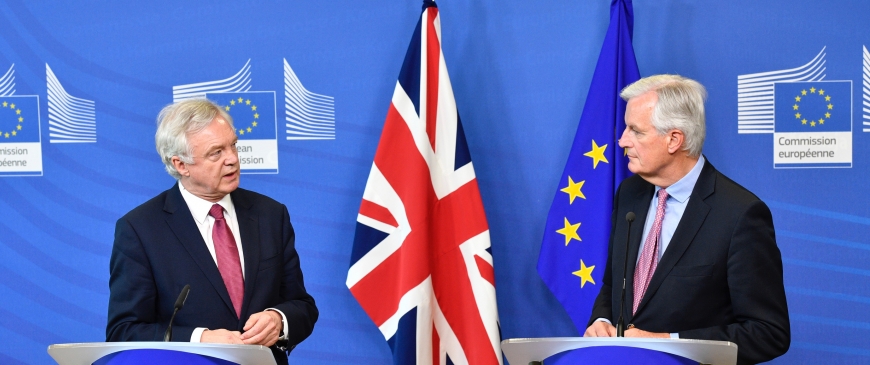
Single market in goods will come at a price for Brexit Britain
Many of the recent arguments over Brexit have concerned customs arrangements. But another thorny issue is creating discord both inside the British government and between the UK and the EU: should the UK remain in the single market for goods trade? It is a proposal under current consideration, thanks to the specific requirements of the Irish border as well as a desire to protect EU-UK trade.
Even if the UK remains in a customs union with the bloc, the EU will need to check that goods crossing borders comply with its standards and rules. Only if the UK also remained in the EU’s single market for goods (and VAT area) would the need for frontier controls disappear. This would resolve the Irish border problem and prevent the disruption of manufacturers’ supply chains.
The challenge, however, is that the EU would never agree to Britain being in the single market for goods unless it adopted all relevant rules, submitted to a punishment mechanism for any deviation, and accepted some oversight by the European Court of Justice. Voluntary alignment by British companies would not suffice; the EU would insist on mechanisms for arbitrating disputes.
Prime minister Theresa May wants some sort of system for aligning with the EU on goods and will discuss it at her cabinet’s away day at Chequers on July 3. Some prominent Leaver ministers — such as David Davis, Boris Johnson and Liam Fox — are unenthusiastic. They see regulatory autonomy as the core purpose of leaving, and the more the UK aligns with EU rules, the less it has to offer prospective partners in trade deals.
Given the UK economy’s emphasis on services, the government’s focus on goods might seem strange. But membership of the services market would mean adopting the Norway model of association with the EU. The price of that includes free movement of labour and substantial budget payments, which many MPs would balk at. And given the size of service industries, such as finance, the value of being a rule-taker is dubious.
If the UK does request membership of the single market in goods, the EU’s initial reaction will be no. Michel Barnier, the European Commission’s chief negotiator, says the single market is “ binary” — you are either in all or none of it — and must involve free movement of labour. Allowing the UK to “cherry-pick” may encourage others to seek such a halfway house. And if the British claim that the EU has allowed Switzerland to be in the market for goods but not services, the commission will respond that the Swiss model was a mistake.
Britain could argue that staying in the single market for goods would suit the EU, since it has a manufacturing surplus with the UK, but a deficit in services trade. The commission in turn describes this as “19th century thinking”, because so much of the value of goods now comes from the input of services. The two cannot be distinguished.
But it is not certain how Europe as a whole would respond to such a request on goods. Germany and France take the same line as the commission, albeit less stridently. But one German official says that some of the EU27 could be sympathetic to such a UK request. Countries with significant manufacturing ties to the UK might be open to British arguments.
Nevertheless, Britain stands little hope of winning over many member states unless its red lines are significantly softened. ECJ jurisdiction, more money for the EU budget and — perhaps most important of all — the degree to which free movement is limited would all matter for the EU. Mrs May’s problem is that the more her red lines soften, the more likely she is to lose some cabinet ministers.
For now, the odd couple of Mr Johnson and Mr Barnier is working to keep Britain out of the single market for goods. But a fightback may be approaching in both Britain and other EU countries from those who are prepared to compromise on legal principles and wish to maximise future trade.
Charles Grant is director of the Centre for European Reform.
